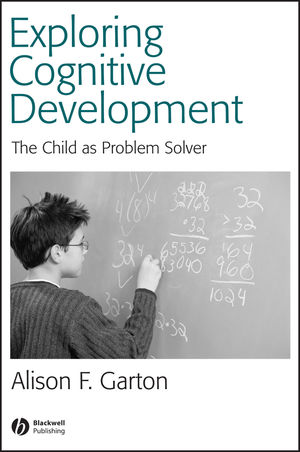Exploring Cognitive Development: The Child As Problem SolverISBN: 978-0-631-23458-6
Paperback
160 pages
April 2004, Wiley-Blackwell
 |
||||||
"With up-to-date coverage, excellent descriptions of research
and a sociocultural approach to problem solving, this book fills an
important niche." Robert S. Siegler, Teresa Heinz Professor of
Cognitive Psychology, Carnegie Mellon University
"Well grounded in the work of Piaget and Vygotsky, Alison
Garton’s wide-ranging account of children’s problem
solving encompasses the latest cognitive developmental and social
cognitive theories. As well as having conceptual depth, the book is
enjoyable to read." Graeme Halford, Professor of Psychology,
University of Queensland
"Alison Garton’s new book is an excellent, highly
readable, examination of children as problem solvers. Garton
provides a refreshing account of the social aspects of problem
solving as she examines not only the effects of collaboration but
also the processes whereby children’s learning is enhanced
(bringing about cognitive change) and ultimately their longer-term
cognitive development. Equally important, she nicely covers what it
is that individual children bring to the collaborative
experience—their personal characteristics (flexibility,
motivation, sociability, friendship with the social partner, etc.)
that can have a dramatic impact on the problem-solving experience
and consequences. While acknowledging the influence of
Piaget’s and Vygotsky’s theories, and highlighting some
of the best research based on these theories, Garton persuades us
of the importance of going beyond them. This book should find a
home on the bookshelves of all who are interested in
children’s cognitive development." Dr Jonathan Tudge,
University of North Carolina at Greensboro
"A course book with the approach of the child as problem solver both in a social, collaborative sense and in relation to their own intrinsic skills. It explores in particular ways in which collaboration influences the cognitive outcome. It reviews the theories of Piaget and Vygotsky and proposes that a frutiful approach lies in examining characteristics of children that may lead them to benefit from collaboration." Scientific and Medical Network Review, Summer 2005



